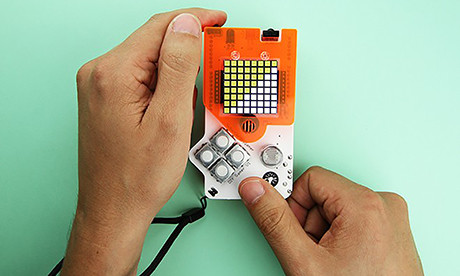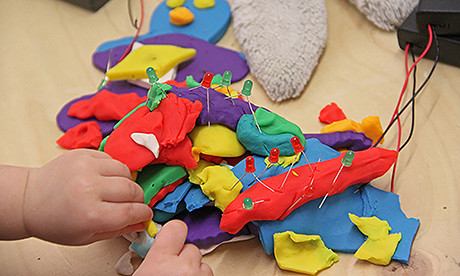Technology Will Save Us brings micro-manufacturing to East London
Even if you left education really quite recently, and think yourself pretty cool because you can type out the HTML code for a hyperlink from memory, it’s still all-too-easy to be put in the shade, digital skills-wise, by children as young as eleven. For them, the ability to knock up a fully functioning web-app in the course of an afternoon is relatively common.
And the new computer science primary curriculum will, in time, make even these eleven year-olds look like they’ve been dragging their heels.
So there’s a market for kit that will introduce kids to computing as early as possible, both in terms of technical skill and the particular philosophy of the discipline, which tolerates mistakes and encourages creative experimentation.
Tower Hamlets-based start-up Technology Will Save Us (TWSU) is one of the companies looking to supply this market, designing DIY Gadget Kits that you make yourself.
“We spark the creative imagination of young people using hands-on technology,” says Bethany Koby, TWSU co-founder.
These flat-pack self-assembly electronics kits are manufactured in a small workshop on Vyner Street, on the south bank of the Regent’s Canal, with occasional support from a factory on the south coast of England.
Designed for families, young people and use in schools, the kits are colourful and durable, ranging from basic circuitry components to let kids build moisture sensors and light up jolly dough faces, to a funky little re-programmable games console which the Museum of Modern Art in New York has recently included in its ‘Humble Masterpieces’ design collection.
The Tower Hamlets workshop is an impressive sight, not just for its beautiful, practical and surprisingly hard-to-source peg-board wall, but for the very fact of its existence: it’s an instance of a former industrial space being refurbished as, unusually, an industrial space, where people actually make stuff.
‘Making’ is an activity in its own right these days. If, linguistically speaking, you find the absence of a predicate kind of annoying (making what?), then get with the programme – or movement, rather.
“The maker movement is a resurgence in people’s desire and ability to make, accompanied by the proliferation of inexpensive democratising tools (3D printers) that allow the maker both to make but also to find an audience for their goods”, says Koby.
“What we do stands on the shoulders of the maker movement.”
With primary teachers scrambling onto computer science training courses across the country, TWSU has put a lot of thought into the products it sells to schools.
“All of our kits are designed to be cross-curricular and to instigate hands on, co-learning,” explains Koby. “They’re mapped to learning outcomes defined by the UK National Curriculum. We produce cost-effective education boxes of kits for educators, which contain schemes of work, lesson plans and fun, engaging classroom resources.
“We regularly work with schools to deliver enrichment days and support to teachers in this new area of the curriculum.”
TWSU is partnering with Hackney Council on the #GetHackneyCoding initiative throughout February, which aims to do just what it says on the hashtag. There may still be time to catch up with the eleven year-olds.


